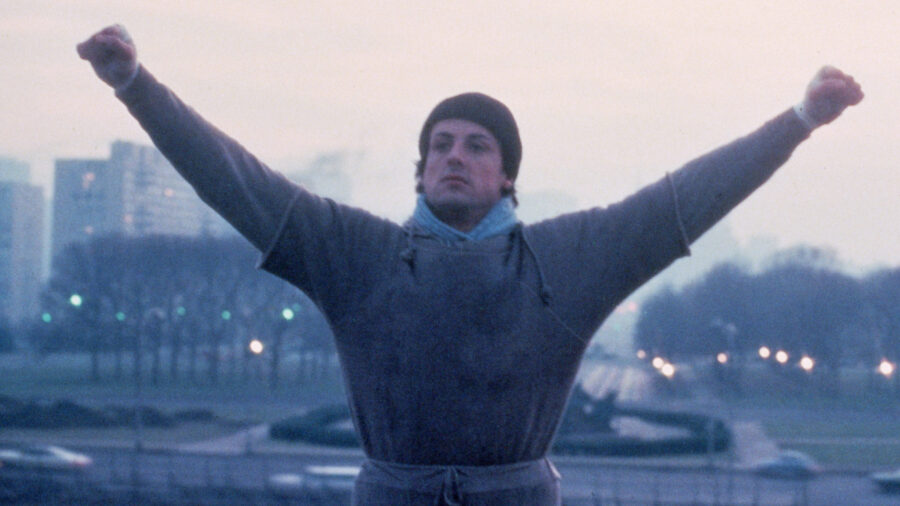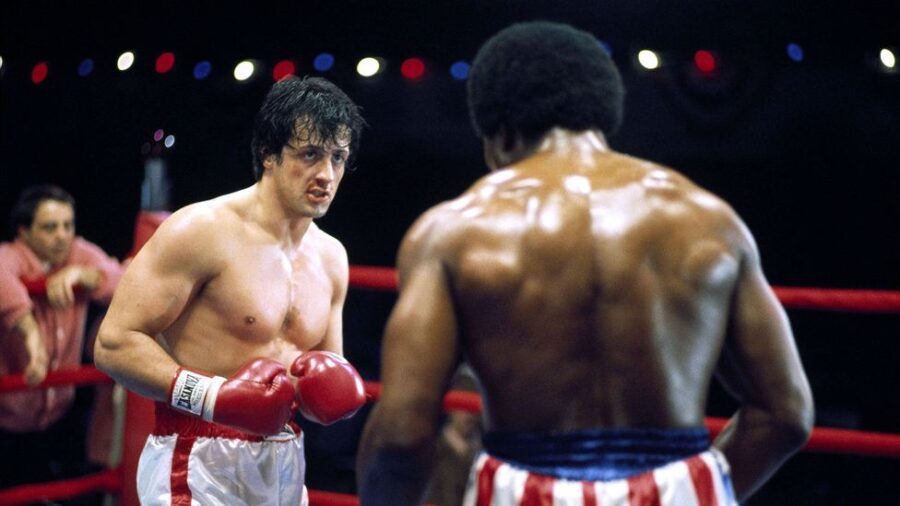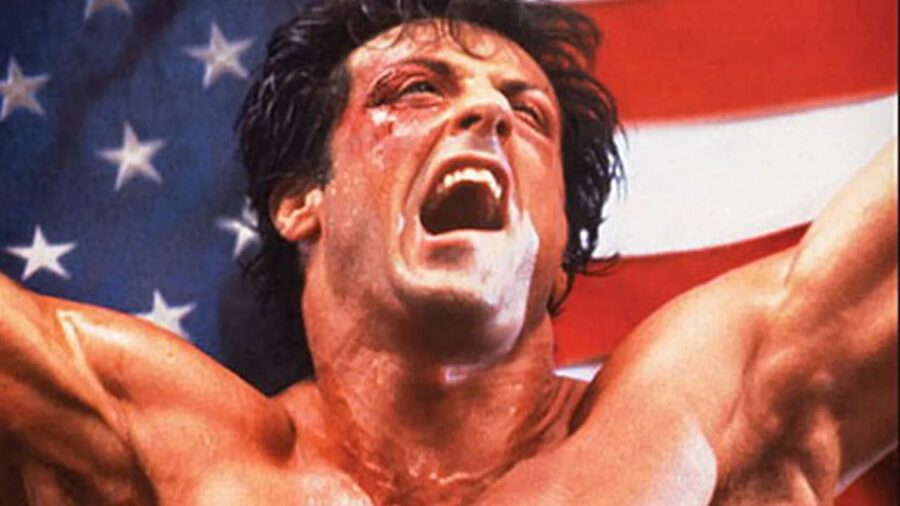The Greatest Sylvester Stallone Movies Are Leaving Netflix

The first five films in the Sylvester Stallone Rocky franchise will be leaving Netflix soon. Although every installment told a compelling story, the 1976 movie, directed by John G. Avildsen from a script by Stallone, turned the titular character and the actor who played him into cultural icons that have stood the test of time.
Rocky is a sports drama about Rocky Balboa (Sylvester Stallone), a down-and-out boxer from Philadelphia, struggling to make a living as a small-time enforcer for a loan shark. Rocky’s life takes an unexpected turn when he is offered a chance to fight the heavyweight champion of the world, Apollo Creed (Carl Weathers), as part of a publicity stunt.
Upon its release, Rocky was met with positive reviews, with critics praising Sylvester Stallone’s heartfelt performance, the realistic and gritty depiction of Philadelphia, and the film’s powerful underdog narrative.
Despite knowing that he can’t win, Rocky (Sylvester Stallone) sees this as his one shot at greatness and trains tirelessly with the help of Mickey Goldmill (Burgess Meredith). He also gains the love and support of Adrian Pennino (Talia Shire), a shy pet store clerk. The film explores themes of determination and the human spirit as Rocky takes on the impossible challenge of going the distance with the champion.
The first five Sylvester Stallone Rocky movies leave Netflix on October 1.
Upon its release, Rocky was met with positive reviews, with critics praising Sylvester Stallone’s heartfelt performance, the realistic and gritty depiction of Philadelphia, and the film’s powerful underdog narrative. The film’s direction by John G. Avildsen and its iconic training montages were also highly hailed as phenomenal.
Viewers were equally enthusiastic, and Rocky quickly became a box office hit. Made on a relatively modest budget of approximately $1.1 million, it earned over $225 million worldwide, making it one of the highest-grossing films of 1976. Sylvester Stallone’s portrayal of Rocky also earned him an Academy Award nomination for Best Actor.

Sylvester Stallone’s success mirrors the underdog story told in Rocky as he wrote the script while struggling as an actor in Hollywood. Stallone was inspired by the 1975 Muhammad Ali vs. Chuck Wepner fight, in which the underdog Wepner managed to go the distance with Ali. The script was shopped around, and he received several offers from studios.
However, Sylvester Stallone insisted on playing the lead role, even though he was virtually unknown then. He even turned down lucrative offers that allowed a more established actor to play the part. Eventually, United Artists agreed to produce the film with Stallone in the lead. The film’s success led to several sequels, with Rocky becoming a franchise spanning decades.
Released in 1979, Rocky II picks up immediately after the first film’s events. Rocky (Sylvester Stallone), struggling with financial difficulties and unable to secure other work, agrees to a rematch with Apollo Creed to prove that his first fight with Creed was no fluke. The film was a commercial success, grossing over $200 million worldwide, and was well-received by critics and audiences.
In 1982’s Rocky III, Sylvester Stallone’s Rocky faces a new challenger, Clubber Lang (Mr. T), who defeats him in a stunning upset. Rocky seeks the help of his former adversary, Apollo Creed, to regain his edge and prepares for a rematch with Lang. The film was another box office success, although it earned slightly less than its predecessors. It also introduced a more flamboyant and showy side of the franchise.

In Rocky IV, released in 1985, Sylvester Stallone’s protagonist faces his most formidable opponent in Ivan Drago (Dolph Lundgren), a Soviet boxer with immense strength and little regard for sportsmanship. The film’s central conflict is heightened by Cold War tensions, symbolizing the era. Although the movie was a commercial success, grossing over $300 million worldwide, critics were divided.
However, audiences loved the film’s high-octane action and patriotic themes, which resonated strongly during the mid-1980s. Rocky V was released in 1990, with the story taking on a different direction as it explores Rocky’s (Sylvester Stallone) financial troubles and his relationship with a young, talented fighter named Tommy Gunn (Tommy Morrison).
The film focuses on Rocky’s mentoring role and his efforts to help Gunn succeed in boxing. Sadly, Rocky V was a critical and commercial disappointment compared to its predecessors. Many fans and critics felt that it did not live up to the quality of the earlier films, and Sylvester Stallone himself expressed disappointment with the final product.
After a long hiatus from the character, Sylvester Stallone returned to the role in 2006’s Rocky Balboa. In this film, Rocky comes out of retirement for a final exhibition match against the current champion, Mason “The Line” Dixon (Antonio Tarver). The movie received generally positive reviews and was considered a return to form for the franchise.
Creed Spin-Off Franchise
While it didn’t match the box office success of the earlier films, it was seen as a fitting and heartfelt conclusion to Rocky’s story. In 2015, the first entry in the Creed spin-off franchise was released. Sylvester Stallone played a vital role in the Creed movies, reprising his iconic character, Rocky Balboa, in the first two.
Rocky served as a mentor and trainer to Adonis Creed, the son of Apollo Creed, sharing his wisdom and boxing knowledge. Beyond his acting, Sylvester Stallone contributed creatively as a producer and consultant, ensuring the films maintained the essence of the original while appealing to a new generation. Fans can catch all five movies in the Rocky franchise on Netflix before they leave the streamer October 1.











